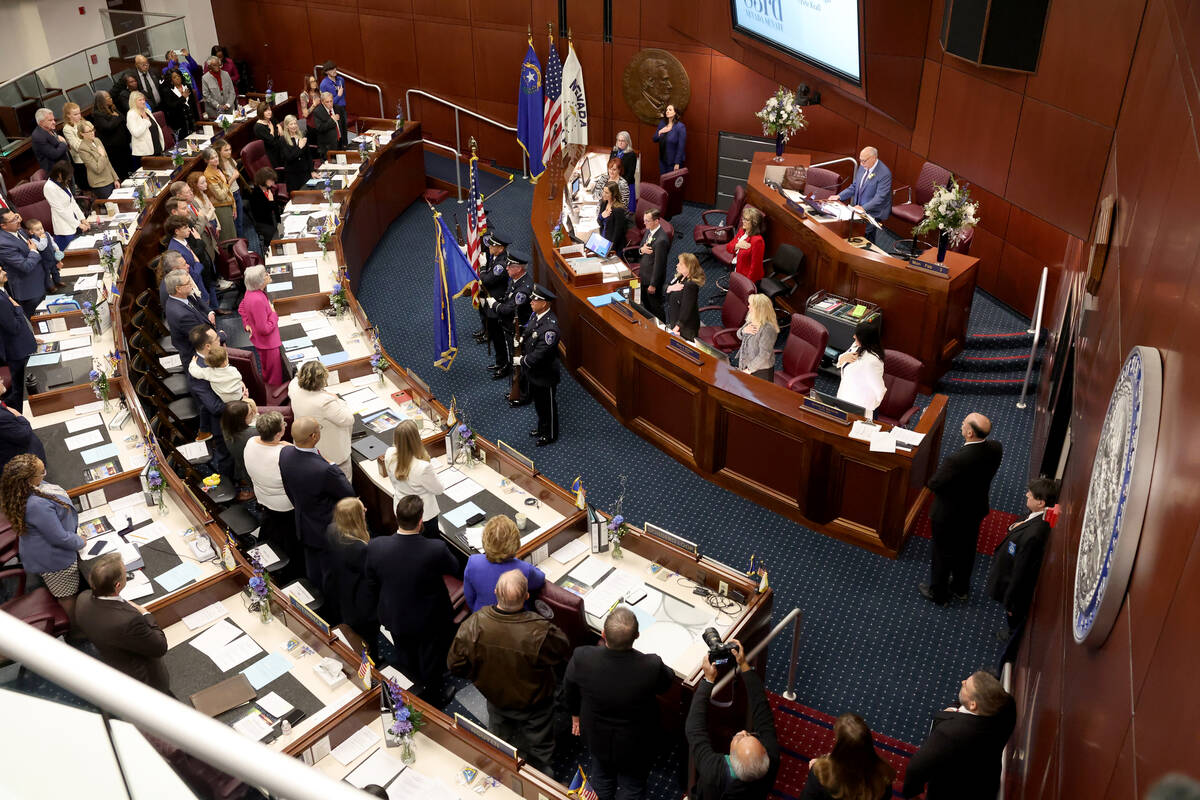CARSON CITY — The Governor’s Finance Office presented a structurally balanced budget at an evening legislative meeting Wednesday, roughly two weeks after Gov. Joe Lombardo’s staff presented its initial proposal with a $335 million deficit over the two-year budget.
Democrats at the earlier meeting blamed the deficit in part on the error of counting one-time appropriations as recurring expenditures. At Wednesday’s meeting, the governor’s staff said multiple amendments cut out such duplicate funding, explored funding reversions and made other changes to establish the balance.
Nevada’s constitution requires the Legislature to pass a balanced budget. Though the 83rd legislative session began on Monday, lawmakers have been meeting in multiple joint panels since Jan. 21 to hear budget proposals from state agencies.
Democrats at the January meeting said they were concerned with the governor’s plans, calling the deficit unprecedented and saying it made the following days of budgetary hearings difficult because they knew to expect changes.
The Governor’s Finance Office’s budget amendments total $164.1 million in fiscal year 2026 and $263.2 million in fiscal year 2027.
Some of the amendments cut the deficit by identifying duplicate costs in some of the governor’s priority bills. Other changes factored in more reversions, or previously allocated but unused funds.
Democrats asked Lombardo’s team to explain why they used one-time funding to support the expanded state-funded pre-K program. They said they worried that approach could lead to budget and programming cuts in future years.
“I sure hope whoever’s in these seats after us — I hope they have all kinds of revenue and that they can do this,” Assembly Speaker Steve Yeager, D-Las Vegas, said. “But without a commitment that there’ll be an effort to raise revenue in the future, if needed, I don’t want to have to pull the rug out from under folks.”
Ryan Cherry, Lombardo’s chief of staff, told the legislators one-time funding methods were chosen because that is how they were funded in the last budget cycle.
No Republicans asked questions during the Wednesday meeting evening, which lasted about two hours. Sen. Robin Titus, R-Wellington, said the back-and-forth on one-shot funding had to do with the influx of taxpayer money received through the American Rescue Plan Act and other COVID-19 pandemic economy efforts.
“We warned folks that we were spending this money way too fast on unsustainable programs, that we were going to fall off a fiscal cliff, and now everybody’s complaining that we are there,” she said, adding that to her, raising taxes is not acceptable. “The money is there, but the fact that all this conversation about, ‘I want guarantees that you’re going to find new funding’ — I think we find ways to spend less.”
Sen. Rochelle Nguyen, D-Las Vegas, asked if the state has created a contingency plan for potential cuts to Medicaid — as was a concern last week, when the Trump administration briefly directed all federal agencies to freeze funding to grants, loans and other programs. The directive was not meant to include impacts to programs that give directly to individuals, but some states reported issues with retrieving money through the online Medicaid system.
Cherry said they have directed the Medicaid administration to consider potential cuts.
“But right now, those are speculative,” Cherry said. “At this point, they’re not in law. We have to build a budget that is within the confines of federal and state law at this point.”
On Wednesday morning, Senate Majority Leader Nicole Cannizzaro, Sen. Marilyn Dondero Loop and Sen. Fabian Doñate sent a letter to Cherry and the director of the Department of Health and Human Services asking information on the potential effects of federal Medicaid cuts, as is being considered by congressional Republicans.
Contact McKenna Ross at mross@reviewjournal.com. Follow @mckenna_ross_ on X.

